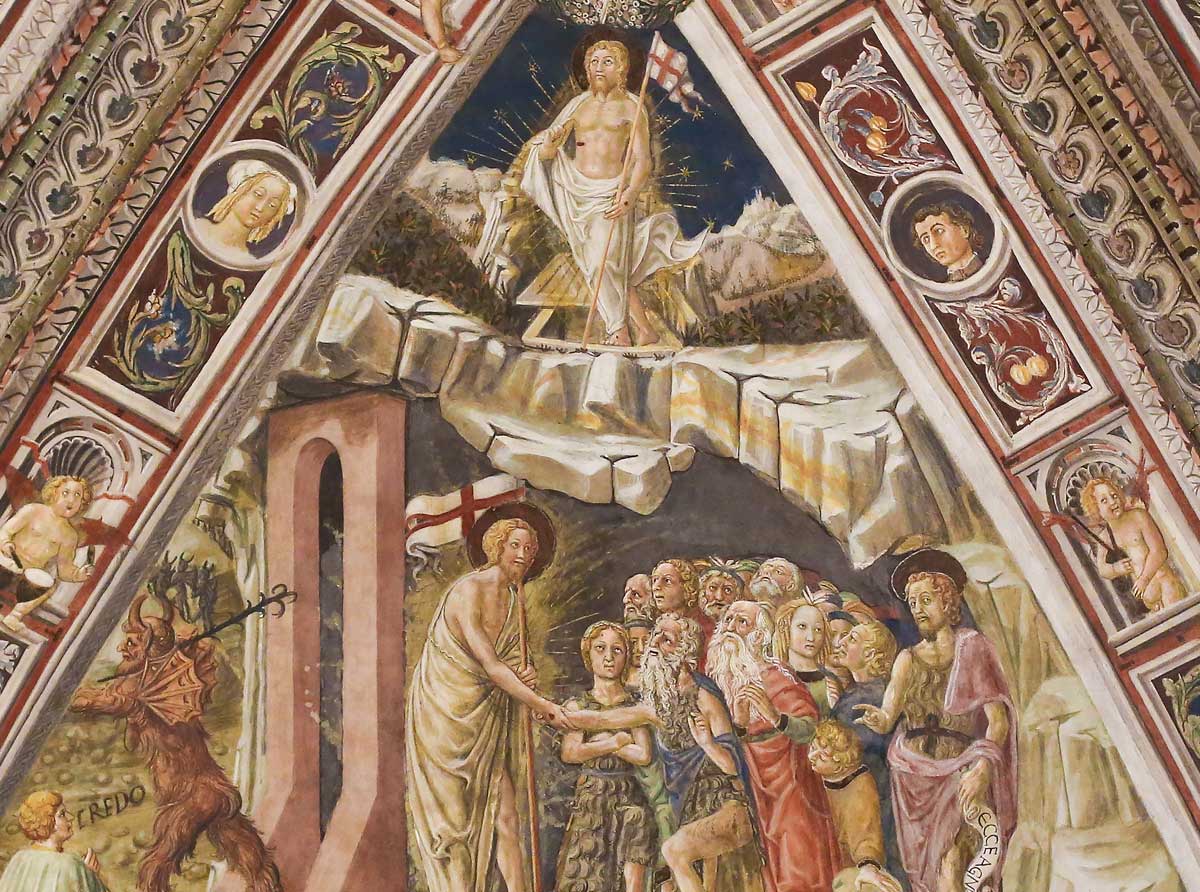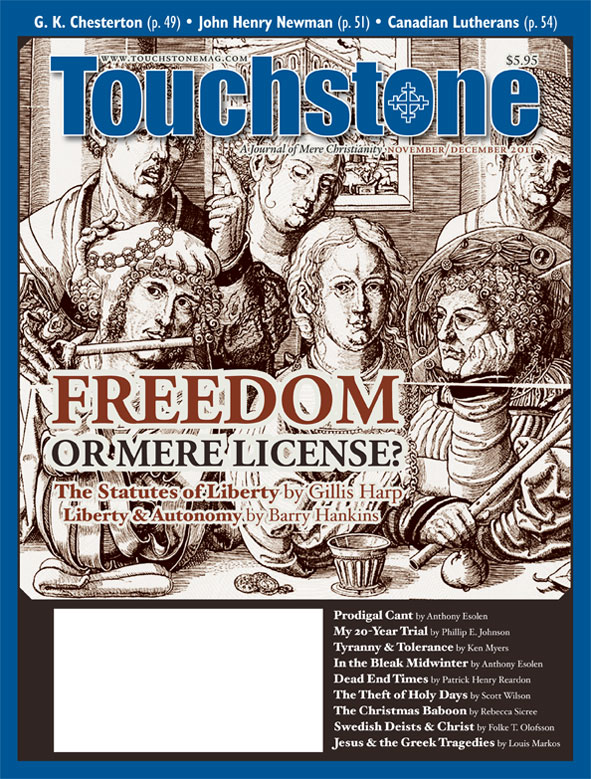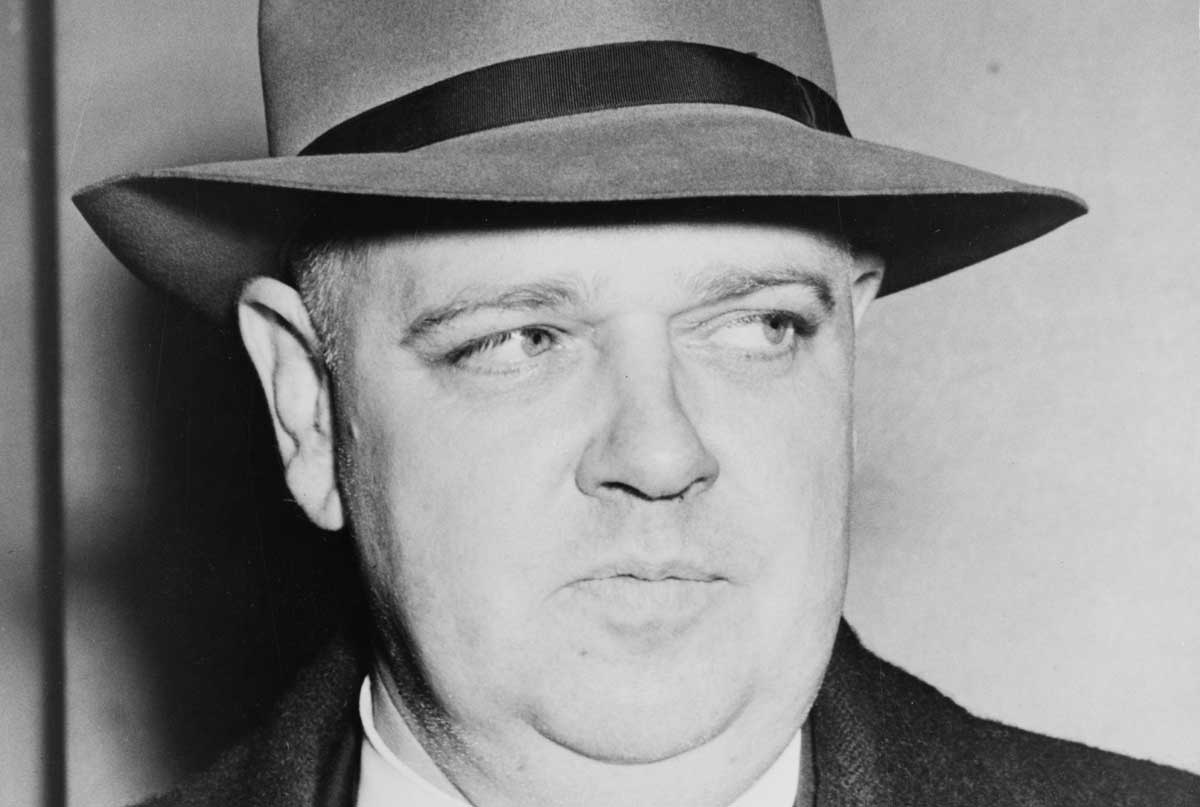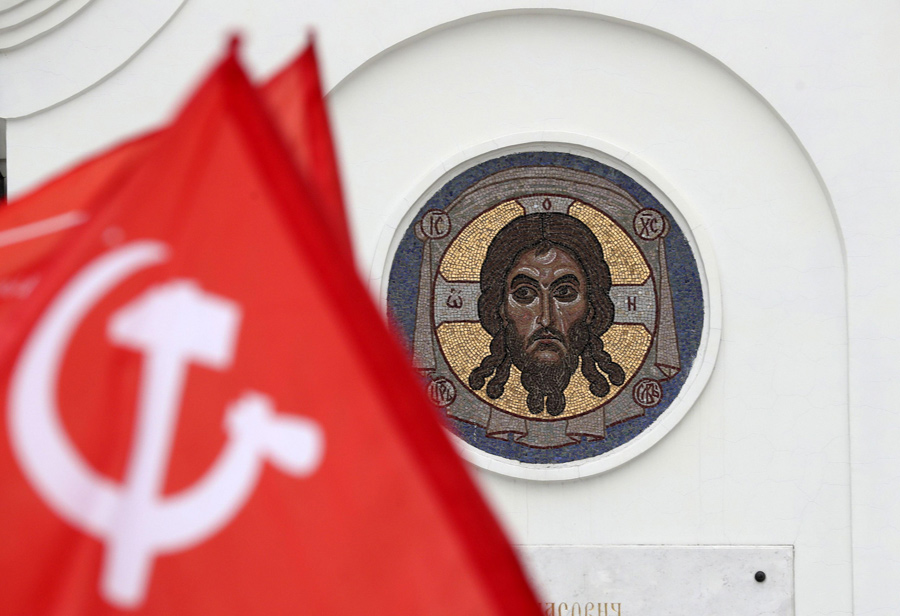Contours of Culture
The Tyranny of Tolerance
In June of 1941, C. S. Lewis preached a sermon that has come down to us as one of his most enduring essays: “The Weight of Glory.” Lewis’s sermon was a reflection on the nature of the rewards that await believers, and he began by making the following claim: “If you asked twenty good men to-day what they thought the highest of the virtues, nineteen of them would reply, Unselfishness. But if you asked almost any of the great Christians of old, he would have replied, Love.”
Lewis went on to comment that the important difference between these two perspectives is more than the substitution of a negative term for a positive one. It is the claim that the really virtuous act is to forgo pleasures or benefits for the sake of others, “as if our abstinence and not their happiness was the important point.” Lewis suspected that the modern virtue of Unselfishness had its origins in Stoicism or in the ethics of Kant rather than in Christianity.
More a Strategy Than a Virtue
I thought of Lewis’s comparison of love and unselfishness when rereading A. J. Conyers’s book on the modern preoccupation with tolerance, The Long Truce: How Toleration Made the World Safe for Power and Profit. In the first chapter of the book, Conyers observes that tolerance has—over the course of the past four centuries—assumed a prominent position on the modern list of virtues. But if it is indeed a virtue, it is, he notes, a peculiar one. Unlike love, unlike faith and hope, unlike the cardinal virtues of prudence, justice, temperance, and courage, tolerance is a virtue with limits. There can never be too much love or justice or hope, but everyone—even the most tolerant among us—agrees that some things shouldn’t be tolerated.
Conyers (who died in 2004) concluded that tolerance (or toleration, the word he uses more frequently) is not so much a virtue as a strategy—not an end in itself but a mechanism to enable individuals within diverse communities to pursue their respective ends. A high regard for toleration is a by-product of modern ideas of freedom, according to which the public and shared pursuit of the meaning of the Good is abandoned, so that each individual can define the Good however he or she wishes.
Ask twenty good men and women today who benefits from a society committed to toleration and a good number will probably identify the members of minority groups. But political philosopher Michael Walzer (cited by Conyers) points out that “toleration in nation-states is commonly focused not on groups but on their individual participants.” And this highlights a central claim of Conyers’s insightful volume: that the practice of toleration as we now know it diminishes the authority and cohesion of virtually all groups—families, churches, schools, professional guilds—while ceding more power to the state. “Tolerance as a modern doctrine . . . has little to do with the survival of minority groups and everything to do with the centralizing of power.”
All About Power
Conyers makes it clear that there is a good way to practice toleration, but it is a way rooted in specific claims about truth, goodness, human nature, and the shape of public good. In the final chapter of The Long Truce, he develops a theology of toleration rooted in the Incarnation and thus saturated with humility. By contrast, the modern version of toleration is all about power—the power of individuals to be free from interference and the power of governments to guarantee individual autonomy by stripping all other sources of authority. As Conyers put it, a totalitarian spirit is at the heart of modern liberalism:
Toleration then became the means of diminishing lesser loyalties, by calling their moral authority into question; and, by thus compromising competing authorities, toleration cleared the ground for the broader, more formal power. It became the mother philosophy of the unarticulated society, the society without traditional contours of social arrangements, the mass society, the society consisting of individuals alone, individuals whose loyalty is focused on the new, remote, comprehensive authority of the state.
Ken Myers is the host and producer of the Mars Hill Audio Journal. Formerly an arts editor with National Public Radio, he also serves as music director at All Saints Anglican Church in Ivy, Virginia. He is a contributing editor for Touchstone.
subscription options
Order
Print/Online Subscription

Get six issues (one year) of Touchstone PLUS full online access including pdf downloads for only $39.95. That's only $3.34 per month!
Order
Online Only
Subscription

Get a one-year full-access subscription to the Touchstone online archives for only $19.95. That's only $1.66 per month!
bulk subscriptions
Order Touchstone subscriptions in bulk and save $10 per sub! Each subscription includes 6 issues of Touchstone plus full online access to touchstonemag.com—including archives, videos, and pdf downloads of recent issues for only $29.95 each! Great for churches or study groups.
Transactions will be processed on a secure server.
more on history from the online archives

14.6—July/August 2001
The Transformed Relics of the Fall
on the Fulfillment of History in Christ by Patrick Henry Reardon

15.6—July/August 2002
Things Hidden Since the Beginning of the World
The Shape of Divine Providence & Human History by James Hitchcock
more from the online archives
calling all readers
Please Donate
"There are magazines worth reading but few worth saving . . . Touchstone is just such a magazine."
—Alice von Hildebrand
"Here we do not concede one square millimeter of territory to falsehood, folly, contemporary sentimentality, or fashion. We speak the truth, and let God be our judge. . . . Touchstone is the one committedly Christian conservative journal."
—Anthony Esolen, Touchstone senior editor











